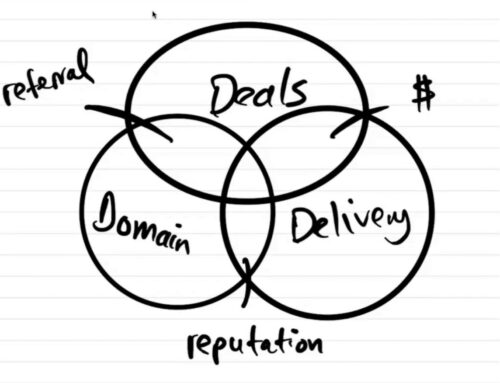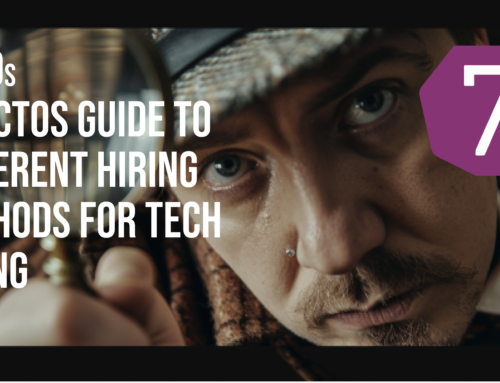Why It’s Okay Not to Finish with Evan Phoenix
Have you ever found yourself working on a side project because you thought you had to and not because you wanted to? Our guest for this episode of CTO Studio has and he also found out why it’s okay not to finish that side project.
Evan Phoenix is the lead engineer on private Terraform enterprise at Hashi Corp, and the Director of Ruby Central. He’s also been a CEO of a start up and regularly finds time to try out side gigs of his own.
Today he tells us how he carves out the time for fun engineering projects and why sometimes it’s okay not to finish those side projects. You’ll hear from Evan on those topics and more on today’s CTO Studio.
In this episode, you’ll hear:
- Is it okay to do something even if you think you are not the right person for the job?
- Why everything we do doesn’t have to become a business.
- What is the “for market” challenge?
- Why does he prefer Go over Rust and C++?
- How to put the fun back in your side projects.
- And so much more!
We start off by talking about Evan’s scariest childhood movie and how we met at a Ruby conference and became friends. Then we segue into talking about his current role at Hashi Corp: he is the lead engineer on the private Terraform enterprise.
He came to that position via his previous start up, Vectra. Vectra eventually became a logging SaaS and Evan and his team worked to build it for 8 or 9 months before their financial runway was depleted. At that point, Evan had to figure out what to do next.
After struggling with the decision, Evan realized he didn’t like being a CEO and so they decided to close Vectra. Along the way, he and his team had been talking to Hashi Corp about what they were doing. When Vectra closed Hashi Corp invited them to come over and work there.
For Evan it was the best case scenario. He didn’t like being a CEO, but he liked working on interesting problems and have some say in what he worked on. Hashi Corp is the perfect place that allows him to do both.
I was curious when he first thought of being the founder of his own company, and why that interested him. Evan explains he wanted what he thinks every founder thinks they are getting when they start their own company: control to do whatever they want to do. They make all the decisions. If they don’t want to do something then they don’t do it, and vice versa.
But the reality changes when the business involves more than just you or you and another person. If you take on investors you no longer have complete control. In Evan’s case his family and friends invested in his business so not your typical investors, but he was still aware of risking other people’s money. And that awareness changed and altered his own risk tolerance.
So now he gets to enjoy his work at Hashi Corp and have fun projects on the side. He says he start a new project every couple of weeks and he does it for him. We go on to talk about engineering simply for the sake of enjoyment, before we discuss his time at Living Social and Splice.
We also talk about how he manages his time as a family man with a wife and two daughters: when does he work on his personal projects? He tries to be kind to himself and he works on them when he has the time.
In the past, he would’ve beaten himself up for not getting more done on something, but now he doesn’t. Instead, he talks to his wife and tells her he wants to work on something. She tells him she wants to do her own thing and then they do their own thing in the evenings.
On the weekends his daughters still have nap times so when they nap he works on his projects. But sometimes he uses those two hours to watch a TV show or do something – and he is now kind to himself about it and just does what he wants. If he wants to work on his project then he does; if he wants to watch Netflix then he does.
We then talk about what he is seeing at Ruby conferences for 2018 and 2019. He says at every conference they ask the audience to show their hands if this is their first time in attendance, and typically about half of the crowd raise their hands.
So every year about half of the people are going to their first Ruby or Rails conference.
And there’s a core group that goes to all the conferences and has since the beginning. They make up about 20% of the attendees. Their Ruby conference is around 800 people and the Rails conference is about 1200. They have found about 30% of people return after their first time attending one of the conferences.
Since he’s been doing these two conferences for so long, does he continue because these are his people?
Yes, it’s really about community far more than the actual technical stuff now. He cut all of his professional chops in the Ruby community so he has tons of friends from there. He goes to the conferences to see them and hang out with them. He knows this is true for other people, so it’s important that the conferences he puts on create an environment that welcomes people and keeps them connected to their friends in the community.
As a conference organizer, it’s important to remember that every session doesn’t have to be something you’ve never done before. They try to ensure their space is conducive to hanging out.
And there are at least a few sessions he would be interested in because he understands he represents a weird slice of the Ruby and Rails community having been to so many conferences. Evan knows if he is interested in a topic then those talks should appeal to at least some of the people in attendance, too.
We wander back to talking about Hashi Corp and finish our chat with Evan telling us what Terraform is, when to explore using Terraform and where infrastructure as a service is going in the future. Listen in for those conversation topics and more on this edition of CTO Studio!
Episode Resources:
The Phoenix Project, by Gene Kim, Kevin Behr, George Spafford
Share This Story, Choose Your Platform!
Related Podcasts




